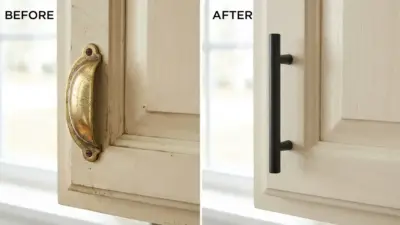As a residential plumber in Englewood, Colorado, with years of experience fixing water heaters, I’ve seen the frustration on homeowners’ faces when their hot water vanishes. A cold shower or a sink full of icy water can ruin your day, but the good news is that many water heater issues are fixable with a little know-how. When your water heater is not heating, the problem could range from a simple power issue to a more complex component failure. I’ve spent my career troubleshooting electric and gas water heaters, pinpointing issues like pilot light failures, thermostat problems, or sediment buildup. My goal here is to guide you through the most common reasons your water heater might be failing, share safe DIY steps, and explain when it’s time to reach out to a trusted local plumber for help.
Let’s get started with practical steps to diagnose and fix your water heater in your Englewood home, so you can get back to enjoying hot water.
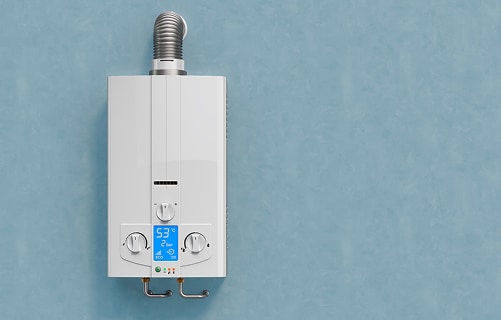
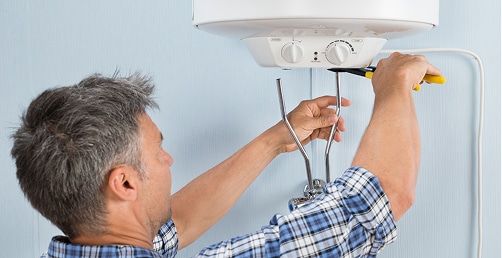
Common Causes of a Water Heater Not Heating
Water heaters, whether gas or electric, rely on multiple components working together. When one fails, you’re left with cold water. Based on my experience fixing units across Englewood, here are the top reasons your water heater is not heating, along with steps you can take.
1. Power Supply Problems
For an electric water heater not heating, the first thing to check is the power supply. A tripped circuit breaker or blown fuse can cut off the unit’s electricity, stopping it from heating water. This is one of the most common issues I see, and it’s often an easy fix.
What to Do:
- Head to your electrical panel and check if the water heater’s circuit breaker has tripped.
- If it’s off, flip it back to “on.” If it trips again right away, there could be an electrical fault, and you should explore reasons for sudden hot water loss with a professional to stay safe.
- For gas water heaters, confirm the gas supply is on and there’s no local outage.
2. Pilot Light Issues (Gas Water Heaters)
If you have a gas water heater with no hot water, a common culprit is the pilot light going out. Without a lit pilot, the burner won’t ignite, leaving you with cold water. In Englewood’s cold winters, drafts can sometimes extinguish the flame.
What to Do:
- Look through the viewing window on your water heater to see if the pilot light is on.
- If it’s out, follow the manufacturer’s instructions to relight it (typically, turn the gas control knob to “pilot” and use a long lighter).
- If the pilot won’t stay lit, the thermocouple or flame sensor might not be working. These are tricky to fix and involve gas, so call a pro for safety.
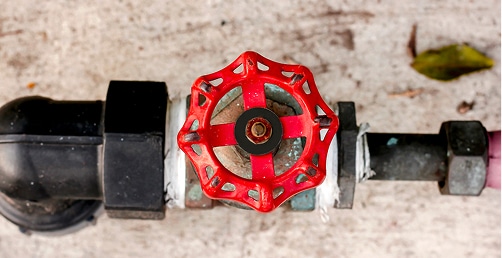
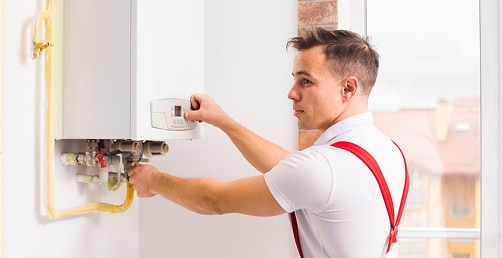
3. Thermostat Malfunctions
Thermostat issues in a water heater can lead to insufficient hot water or no heat at all. Both electric and gas units have thermostats to regulate water temperature, and if they’re set too low or broken, you’ll notice the problem immediately.
What to Do:
- Check the thermostat setting—it should be between 120°F and 140°F for optimal performance and safety.
- For electric water heaters, locate the red water heater reset button and press it if it’s popped out. This safety feature trips if the unit overheats.
- If resetting or adjusting the thermostat doesn’t help, it may need replacing, which is best left to a professional for proper calibration.
4. Faulty Heating Element (Electric Water Heaters)
Electric water heaters use heating elements to warm water. A broken heating element can cause your water heater to stop heating entirely or produce only lukewarm water, especially if your household uses a lot of hot water.
What to Do:
- If you’re comfortable with electrical work, turn off the power at the breaker and use a multimeter to test the heating elements (only after confirming the unit is powered down).
- Replacing elements is complex and involves high voltage, so most homeowners should call a plumber to handle it safely.
5. Sediment Buildup
Englewood’s hard water leads to sediment buildup in water heater tanks, especially in older units. This sediment creates a barrier between the water and the heating element or burner, reducing efficiency and causing cold water output.
What to Do:
- Flushing the tank can clear sediment. Turn off the power or gas, attach a hose to the drain valve, and empty the tank.
- If sediment has built up significantly, it may be time to explore your options for water heater installation, as severe buildup can damage the tank beyond repair.
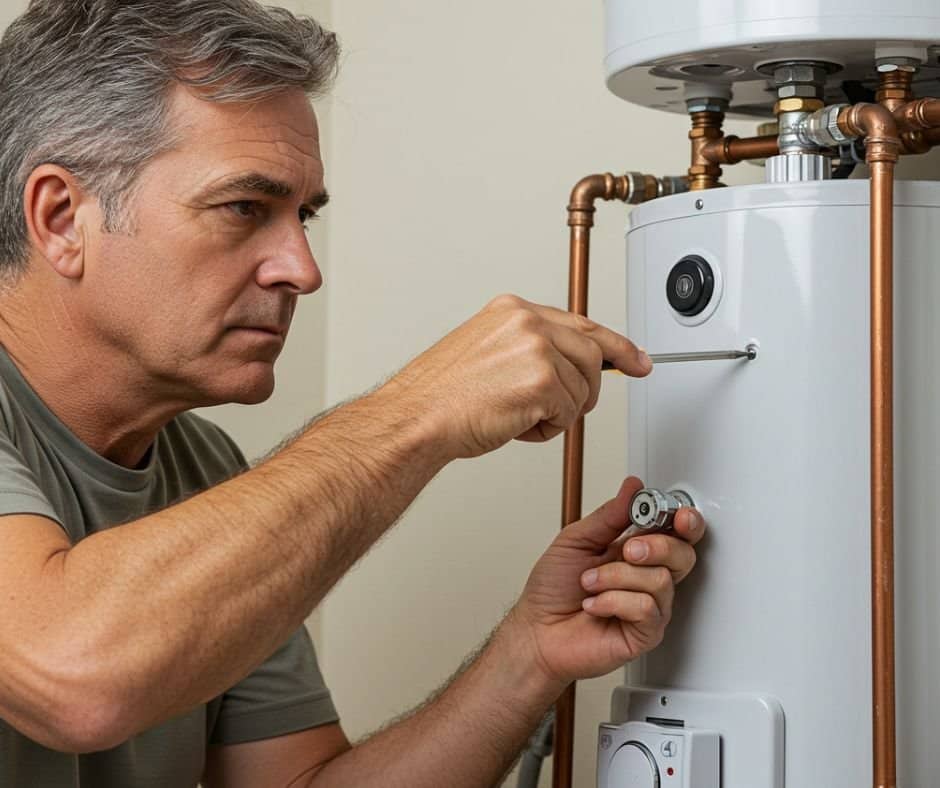
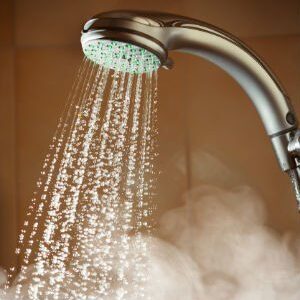
6. Gas Control Valve Failure (Gas Water Heaters)
A faulty gas control valve can prevent the burner from igniting in gas water heaters, resulting in no hot water. This issue often appears in older units or after heavy use.
What to Do:
- If the pilot light and thermocouple are fine, the gas control valve could be the problem.
- This isn’t a DIY fix—gas components are hazardous and require specialized tools, so contact a professional plumber.
Safe DIY Troubleshooting Steps
I’m all about helping homeowners tackle simple fixes when it’s safe. Here’s a no-hot-water troubleshooting guide for steps you can try without risking injury or damage:
- Verify Power or Gas: Check the circuit breaker for electric units or the gas supply for gas units.
- Test the Reset Button: Press the red reset button on electric water heaters if it’s tripped.
- Adjust the Thermostat: Ensure it’s set to 120°F–140°F.
- Relight the Pilot Light: Carefully follow the manufacturer’s instructions for gas units.
- Flush the Tank: Drain the tank to remove sediment if you’re confident in the process.
Safety Warning: Always turn off the power or gas before working on your water heater. If you’re unsure about any step or the issue persists, stop and call a professional. Electricity and gas are dangerous without proper training.
When to Call a Plumber
Some water heater issues require a professional’s expertise. Based on my experience, here’s when you should call a plumber in Englewood:
- Persistent Problems: If the breaker keeps tripping or the pilot light won’t stay lit, there’s likely a deeper issue.
- Gas Component Issues: Problems like a faulty gas control valve or flame sensor are unsafe to fix without training.
- Electrical Repairs: Replacing a heating element or thermostat involves high voltage and should be handled by a pro.
- Leaking Tank: A leak often means the tank is failing and may need replacement.
- Aging Units: If your water heater is 10–15 years old, frequent issues might signal it’s time for a new one.
Englewood plumbers know our local water quality and climate, which can impact your water heater. A pro can diagnose issues quickly and ensure safe, lasting repairs.
Preventing Water Heater Issues
Once your hot water is back, regular maintenance can prevent future problems. Here’s what I recommend to Englewood homeowners:
- Annual Tank Flushing: Clear sediment to boost efficiency and extend tank life.
- Anode Rod Checks: Inspect this corrosion-preventing rod every 2–3 years.
- Pipe Insulation: Insulate hot water pipes to prevent heat loss and freezing in Englewood’s winters.
- Regular Inspections: Have a plumber check your system annually to catch issues early.
- Test the Pressure Relief Valve: Lift the valve’s lever yearly to ensure it releases water properly.
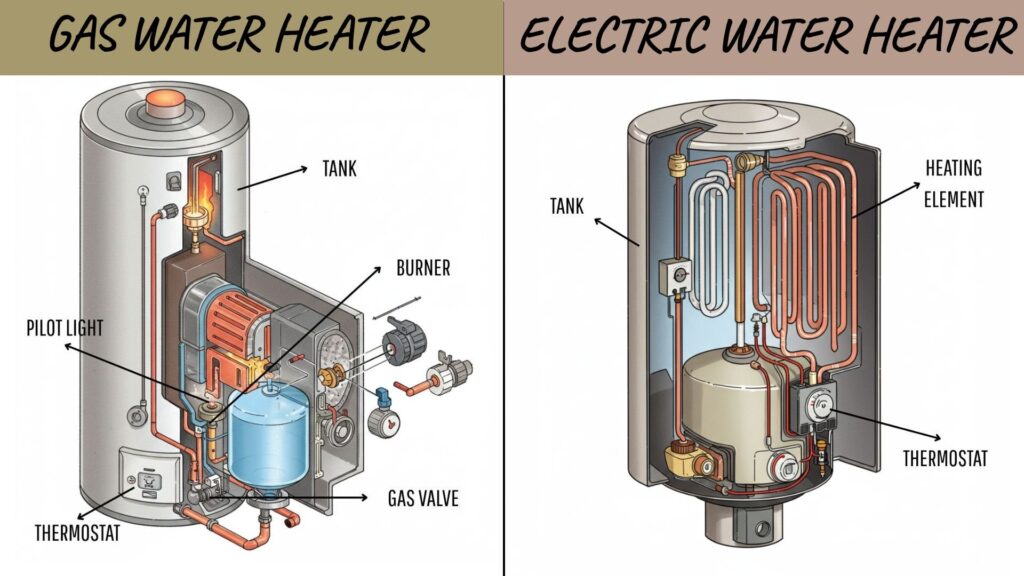
Englewood’s Water Heater Challenges
Englewood’s hard water accelerates sediment buildup, which can shorten your water heater’s lifespan. Our cold winters also stress gas water heaters, making pilot light issues more common. Regular maintenance tailored to these conditions keeps your system running smoothly.
Why Ignoring Issues Costs More
I’ve seen homeowners delay fixing their water heater, hoping the problem will go away. Unfortunately, small issues—like sediment buildup or a faulty thermostat—can lead to bigger problems, like a burst tank or water damage. One client ignored a small leak, which caused thousands in repairs due to flooding. Addressing issues early with a DIY water heater fix or professional help saves time and money.
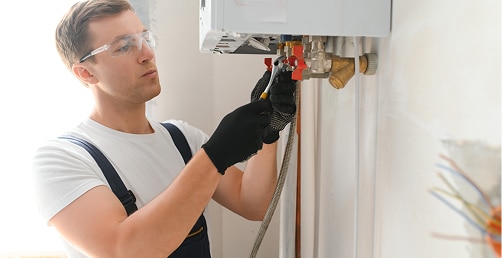
Repair or Replace?
If your water heater is old or constantly breaking down, you might face the repair-versus-replace decision. Here’s how I guide homeowners:
- Repair: Ideal for newer units (under 8 years) with fixable issues like a broken heating element.
- Replace: If the tank is leaking, corroded, or over 10–15 years old, a new unit is often more cost-effective. Modern water heaters are energy-efficient, lowering your bills.
A plumber can assess your unit and recommend the right size and type—tank or tankless—for your home’s needs.
Your Next Steps
Losing hot water is a hassle, but with the right approach, you can fix it. My years in Englewood have taught me that clear communication and practical solutions make all the difference. Whether it’s resetting your water heater or replacing a faulty part, I’m here to help you understand your options. If your water heater is not heating and these troubleshooting steps don’t work, don’t wait—call a professional to restore your hot water safely.
- 0shares
- Facebook0
- Pinterest0
- Twitter0
- Reddit0
